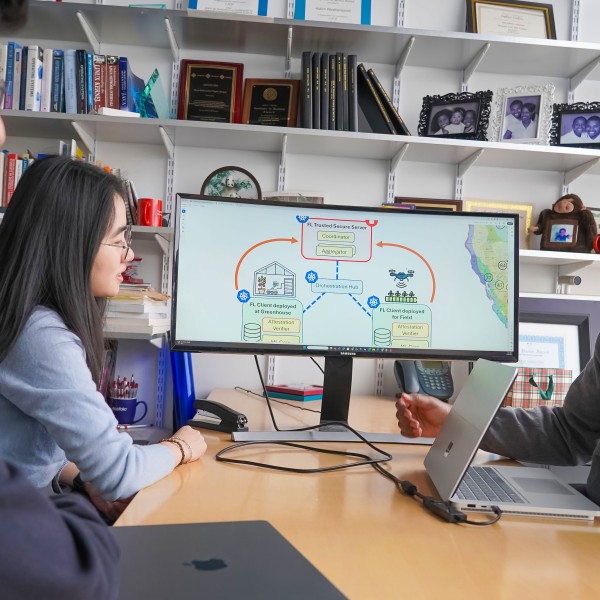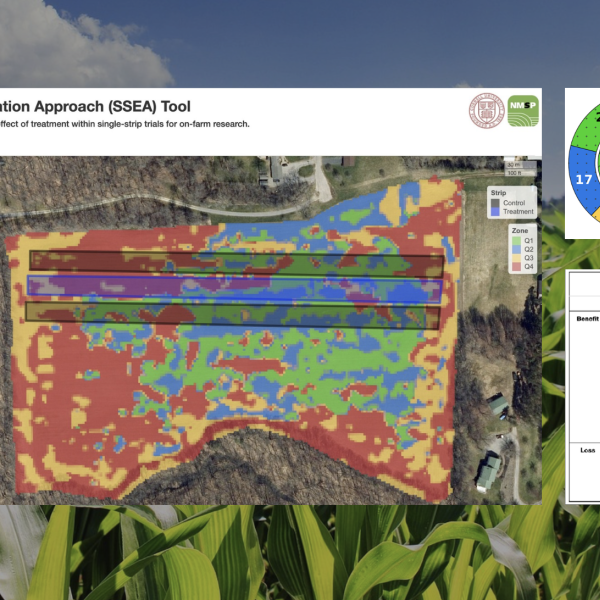Maylin Murdock is a second-year plant breeding Ph.D. student working in the lab of Larry Smart, professor of horticulture at Cornell AgriTech. Maylin is originally from Vallejo, California, and came to Cornell AgriTech after receiving her B.S. in biotechnology and technology management from the University of California, Davis. Her research focuses on high-throughput phenotyping applications in hemp breeding and production. Aside from Smart, Maylin also works closely with Yu Jiang, assistant professor of horticulture, and Katie Gold, assistant professor of plant pathology and plant-microbe biology.
What drew you to the graduate student program at Cornell AgriTech?
I was drawn in by how interdisciplinary and collaborative Cornell AgriTech’s community is. The campus brings together diverse perspectives, which foster growth and development among students. Simultaneously, Cornell AgriTech provides students with opportunities to challenge themselves and explore uncharted territories.
What hemp production challenges does your research address?
There are a number of challenges affecting breeding in hemp. Compared to other crops, there has been relatively little academic research, making it difficult for breeders to access information and resources to develop new cultivars with desirable traits. While there is some knowledge about which traits are important for agronomic performance, there is still much to be learned about the relationship between different traits and how they interact with the environment. Moreover, traditional phenotyping in hemp is time-consuming and expensive. With the potential for expanded hemp acreage in New York state, high-throughput approaches are needed to characterize phenotypes and increase the efficiency of current hemp breeding programs.
What innovative research approaches are you using to improve hemp production in New York state?
To help solve hemp production challenges in New York, I’m currently researching high-throughput phenotyping approaches and applications in hemp breeding. I’m using sensors and imaging technologies to capture large amounts of data at the field scale. I also use machine learning approaches to analyze the data, extract phenotypes, and identify relationships between traits and between environments.
My intentions through my research are to help breeders with evaluations and determine desirable traits more rapidly. I also hope to facilitate the integration of high-throughput phenotyping with genotypic data, enabling full characterization of desirable traits.
Bonus: High-throughput phenotyping is beneficial in building large data sets that can be used to identify trends and patterns in agronomically important traits across different environments. Not only can this help with management practices, but it enables the development of new breeding methods.






